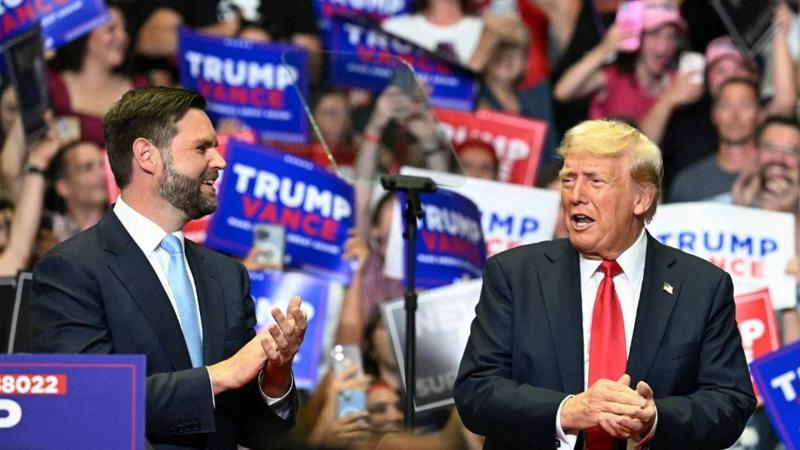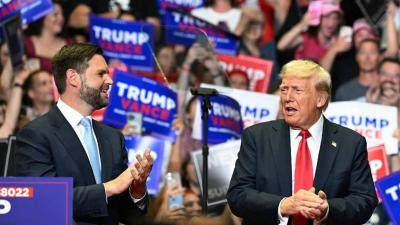There is a perception within electoral circles and polling centers in America and abroad that the assassination attempt on Trump will propel him to win the presidency and return to the White House. There is also a prevailing belief that the assassination attempt has complicated the electoral scene for the Democratic Party and doubled Trump's chances. This situation threatens a sweep of Congress in both chambers, aside from the presidency, to the extent that The Economist magazine predicted Trump's victory in 5 out of 6 forecasts in its precise electoral model, which Democrats consider a red line that is unthinkable.
These factors have prompted Democrats to rally under the slogan that no one is above the party's interests, especially after Biden clung to the presidency. They intensified pressure on him to withdraw, which indeed happened, and he was replaced by his vice president, Kamala Harris. Sources indicate that Democrats, led by Democratic leader Nancy Pelosi, preferred to hold an open conference and open the nomination to everyone to choose an alternative candidate to Biden, fearing that party leaders themselves selecting the candidate would alienate voters. However, she was chosen for several reasons, primarily party unity and fear of angering Black voters due to Trump's assassination attempt and the short time remaining before Election Day. All these factors complicate the task for any candidate, especially since the other side, Trump, has overcome all political machinations, from the investigation into collusion with Russia and attempts to impeach him twice, to his conviction and facing criminal charges in 34 cases.
Amid this electoral chaos, Trump delivered his anticipated acceptance speech at the impressive Republican convention. All he had to do was deliver a national speech similar to those of statesmen as his predecessors did. However, after sharing his poignant story about the assassination attempt, he returned to attack Democrats fiercely, undermining his greatest opportunity to present himself to the world as the President of the United States, despite his promise to change his tone to a more balanced one.
This leads us to compare his actions to what Republican President Ronald Reagan did after his assassination attempt, which briefly occurred on March 30 after he took office in 1981, just 28 days into his presidency. The assailant and shooter was John Hinckley, who was obsessed with actress Jodie Foster and believed that assassinating Reagan would lead her to admire him. The suspect fired several shots, hitting Reagan with a bullet that pierced his chest and settled just over an inch from his heart. Upon being placed in the car, he was unaware he had been hit and began to cough up blood. At that point, everyone realized the president was in grave danger, and when he arrived at the hospital, he joked with the doctors, saying a famous line that still resonates today: "I hope you’re all Republicans," to which renowned surgeon Joseph Giordano, a Democrat, replied, "Today, we're all Republicans." He played a crucial role in saving the president's life.
The assassination attempt did not push Reagan to change his rhetoric. On the contrary, he doubled his calls for unity and protecting America from looming threats amidst the Cold War with the Soviets while maintaining goodwill with all Democratic parties. The reward came in the next elections, where he achieved an electoral miracle that may be hard to replicate against his opponent at the time, Walter Mondale, the Democratic candidate and former vice president under Jimmy Carter. Reagan won the 1984 elections decisively, garnering 525 electoral votes compared to Mondale's 13. He won 49 states out of 50, losing only the state of Minnesota, Mondale's hometown, and the District of Columbia. Reagan's win was one of the most stunning victories in American history due to the assassination attempt.
The big question is whether Trump misses the opportunity of the assassination attempt to unite the deeply divided American nation. The answer so far is that nothing has changed. Trump before the assassination attempt is the same as after it, fully aware that the swing states are decided by independents who abandoned him in 2018 during the midterm elections, in 2020 during the presidential election when he lost both the presidency and Congress in both chambers, and again in the 2022 midterm elections. Moderate Republicans share a similar viewpoint; they are not fond of his rhetoric or personality and do not wish to see him as the Republican nominee, unlike suburban women, a vital third force that Trump continually loses, especially since the competition is against a woman, which will be a very sensitive point for observers. Will this perception change on November 5?




